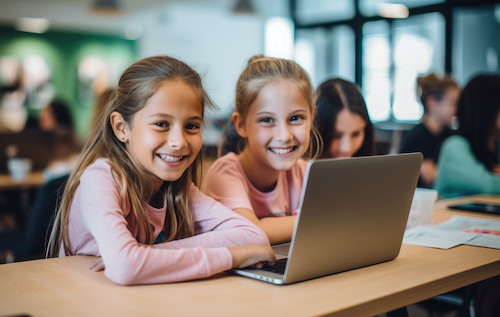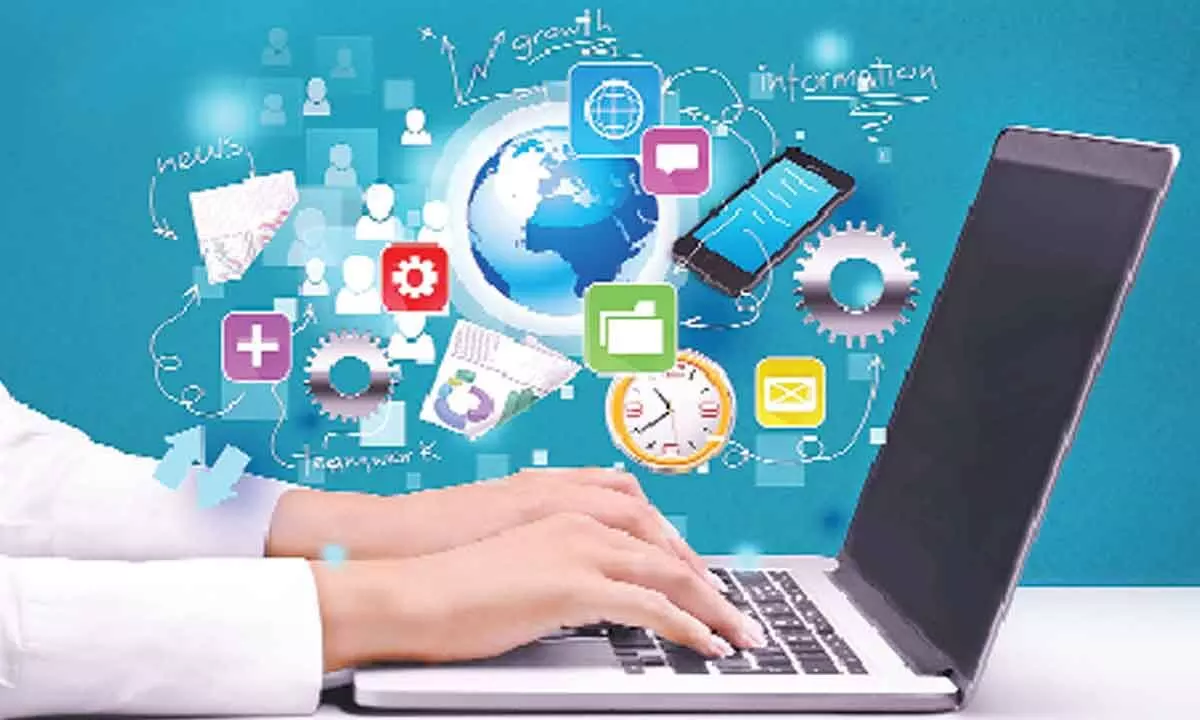Innovative Techniques for Enhancing Innovation Education in Today's Learning Settings
Ingenious strategies, such as hands-on knowing experiences and joint project-based initiatives, play a critical role in connecting academic principles with functional applications. As we explore these approaches, it comes to be essential to think about just how personalized knowing can additionally enrich the educational experience and promote a much deeper connection between trainees and modern technology.
Hands-On Learning Experiences
Hands-on knowing experiences work as a cornerstone in innovation education and learning, efficiently bridging the space between theoretical understanding and functional application. These experiential activities allow pupils to involve directly with tools, software application, and modern technology, fostering a deeper understanding of ideas that are commonly abstract in standard classroom setups.
By incorporating hands-on understanding, instructors can promote a setting where pupils can experiment, introduce, and troubleshoot. This strategy not just grows technological skills however likewise enhances analytic capacities, as pupils are encouraged to confront real-world obstacles. Hands-on experiences often lead to raised trainee motivation and involvement, as learners see the prompt significance of their research studies to practical circumstances.
Moreover, such experiences can take different kinds, consisting of laboratory experiments, simulations, and interactive jobs, every one of which provide to different understanding designs. The integration of hands-on understanding in innovation education and learning also advertises retention of information, as pupils are more probable to bear in mind principles they have proactively collaborated with as opposed to passively observed. On the whole, hands-on experiences are important in preparing pupils for the complexities of the modern-day technological landscape, outfitting them with the skills and self-confidence required to succeed in their future professions.
Collective Project-Based Learning
Collective project-based learning equips students to work with each other in groups to deal with complicated, real-world troubles, fostering necessary skills for the contemporary labor force. This strategy encourages active interaction, vital reasoning, and imagination, as pupils negotiate functions, share duties, and collectively develop remedies. By immersing themselves in jobs that mirror genuine challenges, learners create a much deeper understanding of the topic while refining their capacity to connect and team up effectively.
In technology education, collective project-based knowing can materialize with interdisciplinary tasks that include elements of design, design, and coding. As an example, students might collaborate to produce a mobile application or layout a prototype that addresses a social concern, needing them to incorporate different technological ideas and tools. This experiential discovering not only enhances technological effectiveness however additionally grows analytical skills and adaptability.
In addition, such joint ventures promote a feeling of area among pupils, promoting interpersonal partnerships and a shared commitment to their project end results. As they browse the complexities of synergy, pupils learn to value diverse perspectives and utilize each other's toughness, preparing them for future professional settings where collaboration is essential. Eventually, joint project-based knowing is a keystone of effective modern technology education.
Assimilation of Online Resources

The assimilation of on-line sources helps with access to up-to-date details and sector criteria, which is necessary in a rapidly advancing technological landscape. By leveraging systems such as MOOCs (Large Open Online Courses) and specialized instructional internet sites, teachers can supplement traditional curricula with real-world applications, making it possible for trainees to engage with present trends and techniques.

Eventually, the thoughtful combination of online resources in technology education and learning fosters a more vibrant, interesting, and pertinent learning experience, outfitting pupils with the abilities and expertise necessary to thrive in a significantly electronic globe.
Gamification Methods in Education
The unification of gamification strategies in education and learning stands for a powerful approach to further involve trainees and enhance their understanding experiences. By incorporating game-like elements such as factors, badges, and leaderboards into the curriculum, educators can stimulate motivation and foster a feeling of competition amongst learners. These techniques encourage engagement and determination, particularly in topics that may otherwise show up daunting.
Gamification can take different forms, consisting of interactive quizzes, joint tasks, and immersive simulations, which permit students to use their expertise in sensible contexts. This interactive technique not only makes finding out delightful however also enhances vital ideas through rep and immediate feedback. As students development, they can track their achievements, advertising a growth frame of mind and a feeling of accomplishment.
In addition, gamification promotes differentiated instruction by dealing with varied great site understanding designs and rates. Students are empowered to take ownership of their knowing trip, enabling for an extra tailored instructional experience. In an increasingly digital world, using gamification techniques can bridge the gap between conventional education and modern technical innovations, eventually preparing trainees for future difficulties.
Personalized Knowing Approaches
Customized discovering hop over to these guys methods are increasingly recognized as important for dealing with the diverse needs and choices of pupils in today's academic landscape. These methods equip learners by customizing instructional experiences to private interests, strengths, and discovering speeds, consequently boosting involvement and retention.
In innovation education, individualized understanding can take numerous kinds, including adaptive understanding innovations, individualized educational programs, and project-based discovering tailored to student passions. Platforms that make use of man-made intelligence can examine a student's efficiency data to advise particular resources or activities that align with their understanding style.
In addition, customized learning motivates pupil agency, permitting students to set goals and pick pathways that resonate with their desires (Grants). This freedom fosters a much deeper link to the material, eventually bring about improved results
Educators play a crucial duty in this process, employing formative analyses to monitor progress and readjust instruction appropriately. Joint devices and digital profiles can likewise assist in personalized learning, permitting students to assess their trips and display their achievements.
Conclusion
In final thought, improving modern technology education and learning in modern understanding settings necessitates the implementation of innovative techniques that prioritize hands-on discovering, collective jobs, and the assimilation of on-line sources. Gamification methods serve to boost involvement and motivation, while personalized discovering strategies accommodate private staminas and foster student agency. Collectively, these techniques create a dynamic instructional experience that prepares pupils for real-world challenges and cultivates essential skills for future success in a rapidly evolving technical landscape.
As we discover these techniques, it comes to be critical to take into consideration just how individualized discovering can even more enhance the academic experience and foster a much deeper link between trainees and technology. The assimilation of hands-on discovering in innovation education additionally promotes retention of information, as pupils are a lot more likely to bear in mind ideas they have proactively worked with instead than passively observed.The consolidation of gamification techniques in education and learning represents an effective method to better involve students and boost their understanding experiences. Trainees are empowered to take possession of their learning trip, allowing link for an extra customized instructional experience.In final thought, boosting innovation education and learning in contemporary understanding environments demands the implementation of ingenious strategies that prioritize hands-on understanding, collective tasks, and the integration of on the internet sources.